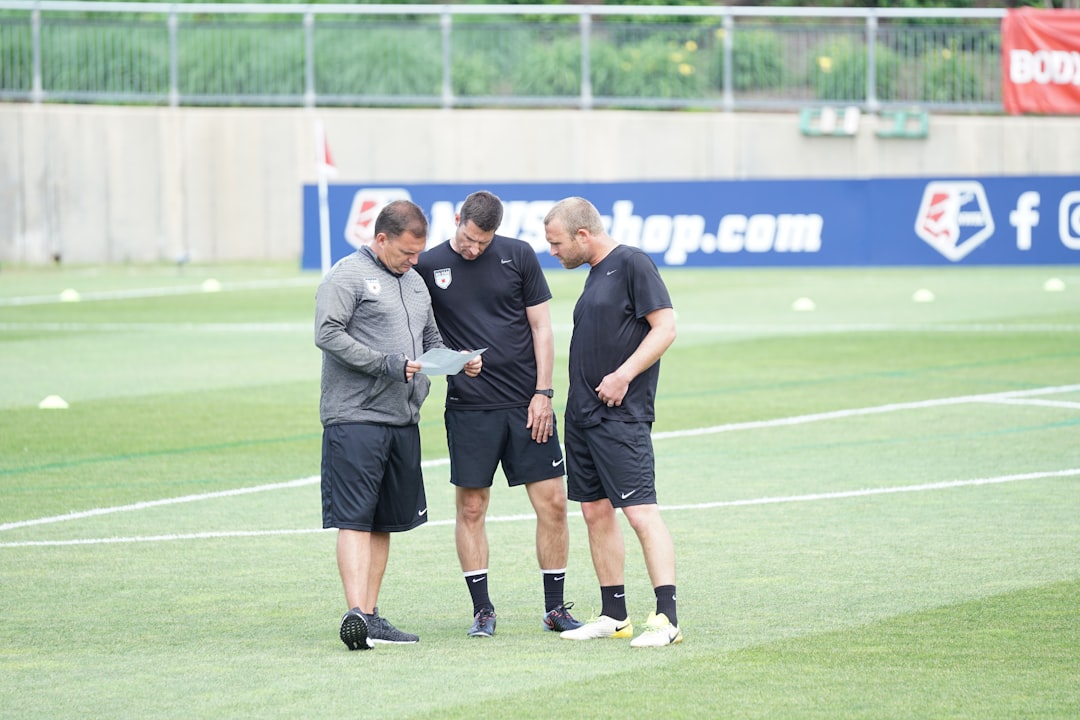Communication Gold: The Good Coach Works on These Skills.
Part 2 in looking at the skills that define a good coach.
Welcome to edition 194 of The Physical Movement, I consider it a privilege to have you spend a few minutes every week as we look to cover the topics around youth sport and leadership.
This week, we share part 2 on coaching skills. In edition 193 of TPM, we addressed some of the skills that define a “good coach”, and this week we dive a little deeper into the skill of communication.
Let’s dive in:
Some communication gold, that I often think about as it applies to multiple situations:
Don’t fall victim to the belief that because you as a coach (or parent for that matter) say it, they will understand it and do it right.
This just does not happen that way for most young athletes.

We can literally spell it out for some players, and what you say and what they hear are two different things. Parents? employers/employees ? This applies to life does it not?
Friend of TPM Coach Lee Taft put it very well in a social media post recently:
Here is how to help increase the transfer of your words to them properly executing what you asked...
1. ALWAYS CHECK FOR UNDERSTANDING AFTER YOUR EXPLANATION AND DEMONSTRATION.
2. ASK ONE PLAYER TO DEMONSTRATE IN FRONT OF THE GROUP AND ASK THE GROUP IF IT IS CORRECT.
3. GIVE CONTEXT BY USING GAME EXAMPLES OF A PLAYER USING THE SKILL OR ACTION IN A GAME, SO PLAYERS IMMEDIATELY RELATE.
Top that off with allowing them to practice, also provide feedback, and gradually get everyone on the same page.
But, if you are trying to get players to listen, you must check for understanding and hold them more accountable for paying attention.
The good coach is one who works on his/her communication.
The good coach will deliver instruction in multiple ways. By demonstration, verbally, by video, by guiding young athletes during performance of the skills with consistent feedback.
The good coach has various ways of practicing the fundamental individual or team skills required for increased competence.
The good coach will enlist the help of supporting coaches to support the message of the head coach.
The good coach understands the rules of the game, the skills of the game. If he/she can’t teach the basic skills, he will find someone to help or (for young athletes) brush up on required skills. This part gets tricky as kids develop. “Off the cuff” coaching by ill prepared and well-meaning parents often results in less that ideal results.
Development requires the athlete to be challenged in a progressive and appropriate way. When the challenge is too much of a jump, or not enough, development suffers.
Coming out of university with a teaching degree, I clearly recall our student teaching experiences being evaluated carefully on our verbal and body language, our organizational and planning skills, our ability to provide an experience that students would benefit from, and perhaps most importantly be able to lead our young people consistently.

In my 8 years of teaching and coaching in the school system, I remember go to resource was the book of lead up games (when we had reference books in our travel bag and office shelves!). The activities that would teach the desired skills through mini games.
I remember using these even at the college level with young adults learning how to skate (partner activities), or play soccer, volleyball, basketball, badminton and other sports.
Those lead up games with the K-3 group were very movement oriented and co-operative games. Grades 4-7 were movement + object manipulation skills and increased focus on spatial and body awareness. Middle and high school were mini games almost always that incorporated team skills. Activities that focused on the basic skills disguised as play.
It took planning.
It took some thought.
It took some research and most of all it developed with experience.
Which brings us to perhaps one of the most important qualities of a good coach.
The good coach must feel comfortable being vulnerable. The good coach can admit mistakes and learn from them. There is not one coach or teacher on the planet that did not review their lesson or practice or game management and thought about a better way next time.
That is our curse at times, we think that part too much, but it also a blessing as it represents the process of honing our craft.
What is also a curse is the insecure coach who feels he/she must have all the answers, and come across as the expert at all times sharing information that is not accurate or based on the fundamentals of skill more movement execution.
The good coach works at communication skills the same way we work with our athletes on the skills of execution. The very process we teach is also the process we need to follow to continue to get better and impact as many young people as possible.
Don’t Make It Weird
Speaking of vulnerability, this story caught my eye this past week. A young football player in the USA stepped back from his athlete life because things did not feel right.
This is the kind of story that should be shared. Good for him.


